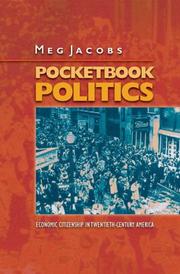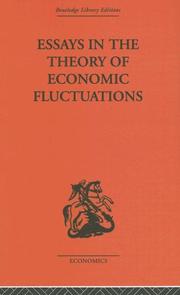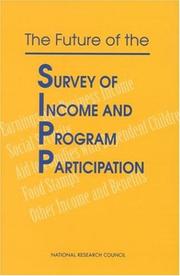| Listing 1 - 10 of 45 | << page >> |
Sort by
|
Book
ISBN: 9780674240292 0674240294 9780674240315 0674240316 9780674987272 0674987276 Year: 2019 Publisher: Cambridge, MA
Abstract | Keywords | Export | Availability | Bookmark
 Loading...
Loading...Choose an application
- Reference Manager
- EndNote
- RefWorks (Direct export to RefWorks)
Popular culture assumes that women are born to shop and that cities invite their trade. But downtowns were not always welcoming to women. Emily Remus turns to Chicago at the turn of the last century to chronicle an unheralded revolution in women's rights that took place not at the ballot box but in the streets and stores of the business district.
E-books --- Women consumers --- Shopping --- Purchasing power --- Retail trade --- History. --- Loop (Chicago, Ill.) --- Chicago (Ill.) --- Economic conditions.
Book
ISBN: 0674240316 0674240294 Year: 2019 Publisher: Cambridge, MA : Harvard University Press,
Abstract | Keywords | Export | Availability | Bookmark
 Loading...
Loading...Choose an application
- Reference Manager
- EndNote
- RefWorks (Direct export to RefWorks)
Popular culture assumes that women are born to shop and that cities invite their trade. But downtowns were not always welcoming to women. Emily Remus turns to Chicago at the turn of the last century to chronicle an unheralded revolution in women's rights that took place not at the ballot box but in the streets and stores of the business district.
Women consumers --- Shopping --- Purchasing power --- Retail trade --- History. --- History. --- History. --- History. --- Loop (Chicago, Ill.) --- Chicago (Ill.) --- History. --- Economic conditions.
Book
ISBN: 303897367X Year: 2018 Publisher: Basel, Switzerland : MDPI,
Abstract | Keywords | Export | Availability | Bookmark
 Loading...
Loading...Choose an application
- Reference Manager
- EndNote
- RefWorks (Direct export to RefWorks)
This Special Issue is devoted to the econometric analysis of income inequality and income distributions. Given the recent surge of inequality research, this Special Issue seeks to combine both theoretical and applied contributions which advance the econometric analysis of income inequality and income distributions. Possible topics include, but are not limited to, statistical inference for inequality measurement, inequality measurement with complex survey data, parametric or nonparametric modeling of income distributions, statistical decomposition methodology, methods to investigate the determinants of distributional change, causal inference in inequality measurement, and applications of such methods to substantive research questions in different fields of economics.
Econometrics. --- Income. --- Family income --- Fortunes --- Household income --- Personal income --- Economics --- Finance --- Property --- Wealth --- Gross national product --- Profit --- Purchasing power --- Economics, Mathematical --- Statistics

ISBN: 9780691130415 9780691086644 0691130418 0691086648 1400843782 1299987591 9781400843787 9781299987593 Year: 2007 Publisher: Princeton, NJ
Abstract | Keywords | Export | Availability | Bookmark
 Loading...
Loading...Choose an application
- Reference Manager
- EndNote
- RefWorks (Direct export to RefWorks)
"How much does it cost?" We think of this question as one that preoccupies the nation's shoppers, not its statesmen. But, as Pocketbook Politics dramatically shows, the twentieth-century American polity in fact developed in response to that very consumer concern. In this groundbreaking study, Meg Jacobs demonstrates how pocketbook politics provided the engine for American political conflict throughout the twentieth century. From Woodrow Wilson to Franklin Roosevelt to Richard Nixon, national politics turned on public anger over the high cost of living. Beginning with the explosion of prices at the turn of the century, every strike, demonstration, and boycott was, in effect, a protest against rising prices and inadequate income. On one side, a reform coalition of ordinary Americans, mass retailers, and national politicians fought for laws and policies that promoted militant unionism, government price controls, and a Keynesian program of full employment. On the other, small businessmen fiercely resisted this low-price, high-wage agenda that threatened to bankrupt them. This book recaptures this dramatic struggle, beginning with the immigrant Jewish, Irish, and Italian women who flocked to Edward Filene's famous Boston bargain basement that opened in 1909 and ending with the Great Inflation of the 1970's. Pocketbook Politics offers a new interpretation of state power by integrating popular politics and elite policymaking. Unlike most social historians who focus exclusively on consumers at the grass-roots, Jacobs breaks new methodological ground by insisting on the centrality of national politics and the state in the nearly century-long fight to fulfill the American Dream of abundance.
Income distribution --- Purchasing power --- Consumption (Economics) --- Consumer demand --- Consumer spending --- Consumerism --- Spending, Consumer --- Demand (Economic theory) --- Current purchasing power --- Currency question --- Money --- Prices --- Cost and standard of living --- Income --- Money illusion --- Distribution of income --- Income inequality --- Inequality of income --- Distribution (Economic theory) --- Disposable income --- History --- United States --- Politics and government --- Economic conditions --- Consumption (Economics) -- United States -- History -- 20th century. --- Income distribution -- United States -- History -- 20th century. --- Purchasing power -- United States -- History -- 20th century. --- United States -- Economic conditions -- 20th century. --- United States -- Politics and government -- 20th century. --- Revenu --- Pouvoir d'achat --- Consommation (Economie politique) --- Répartition --- Histoire --- Etats-Unis --- Politique et gouvernement --- Conditions économiques
Book
ISBN: 1107235049 1139610317 1139612174 1139621475 1283943077 1139625195 113960872X 1139615890 113904561X 110701476X 1316601110 9781139625197 9781139045612 9781283943079 9781107014763 9781316601112 Year: 2012 Publisher: Cambridge Cambridge University Press
Abstract | Keywords | Export | Availability | Bookmark
 Loading...
Loading...Choose an application
- Reference Manager
- EndNote
- RefWorks (Direct export to RefWorks)
Currency values, prices, consumption and incomes are at the heart of the economic performance of all countries. In order to make a meaningful comparison between one economy and another, economists routinely make use of purchasing power parity (PPP) exchange rates, but while PPP rates are widely used and well understood, they take a lot of effort to produce and suffer from publication delays. Currencies, Commodities and Consumption analyses the strengths and weaknesses of two alternatives to PPP. Firstly, the so-called Big Mac Index, which uses hamburger prices as a standard of measurement, and second, a less well known technique which infers incomes across countries based on the proportion of consumption devoted to food. Kenneth W. Clements uses international macroeconomics, microeconomic theory and econometrics to provide researchers and policy makers with insights into alternatives to PPP rates and make sense of the ongoing instability of exchange rates and commodity prices.
Consumer price indexes. --- Cost and standard of living. --- Purchasing power parity. --- Foreign exchange. --- Cambistry --- Currency exchange --- Exchange, Foreign --- Foreign currency --- Foreign exchange problem --- Foreign money --- Forex --- FX (Finance) --- International exchange --- International finance --- Currency crises --- Law of one price --- One price, Law of --- Parity, Purchasing power --- Foreign exchange --- Comfort, Standard of --- Cost of living --- Food, Cost of --- Household expenses --- Living, Cost of --- Living, Standard of --- Standard of living --- Consumption (Economics) --- Home economics --- Households --- Quality of life --- Wealth --- Luxury --- Prices --- Purchasing power --- Wages --- Consumer price index --- Cost of living indexes --- CPIs (Consumer price indexes) --- Retail price indexes --- Cost and standard of living --- Price indexes --- Surveys --- Business, Economy and Management --- Economics

ISBN: 0415434653 9780415434652 1315016818 1136517022 0415313724 1299977545 9781136517020 9781315016818 9780415313728 9781136517167 1136517162 9781136517099 113651709X Year: 2003 Publisher: Oxon [England] : Routledge,
Abstract | Keywords | Export | Availability | Bookmark
 Loading...
Loading...Choose an application
- Reference Manager
- EndNote
- RefWorks (Direct export to RefWorks)
These essays, though formally independent, nevertheless constitute a whole, each one preparing the way for the succeeding chapter.
Business cycles. --- Economics, Mathematical. --- Income. --- Monopolies. --- Combinations in restraint of trade --- Commercial corners --- Corners, Commercial --- Engrossing --- Forestalling --- Family income --- Fortunes --- Household income --- Personal income --- Economics --- Mathematical economics --- Economic cycles --- Economic fluctuations --- Mathematics --- Commercial crimes --- Trade regulation --- Competition --- Monopolistic competition --- Monopsonies --- Restraint of trade --- Trusts, Industrial --- Finance --- Property --- Wealth --- Gross national product --- Profit --- Purchasing power --- Econometrics --- Cycles --- Methodology

ISBN: 0309047951 0309585023 0585143390 9780585143392 9780309047951 9780309585026 Year: 1993 Publisher: Washington, D.C. National Academy Press
Abstract | Keywords | Export | Availability | Bookmark
 Loading...
Loading...Choose an application
- Reference Manager
- EndNote
- RefWorks (Direct export to RefWorks)
Transfer payments. --- Income --- Transfer payments --- Household surveys --- Social surveys --- Business & Economics --- Economic History --- Statistical services --- Evaluation --- Methodology --- Evaluation. --- Community surveys --- Surveys, Social --- Surveys, Household --- Government transfer payments --- Payments, Transfer --- Family income --- Fortunes --- Household income --- Personal income --- Social sciences --- Surveys --- Census --- Expenditures, Public --- Income distribution --- National income --- Economics --- Finance --- Property --- Wealth --- Gross national product --- Profit --- Purchasing power --- Research --- Accounting
Book
ISBN: 1283259494 9786613259493 904852105X 9052602530 9789048521050 9789052602530 9781283259491 6613259497 Year: 2009 Publisher: Amsterdam
Abstract | Keywords | Export | Availability | Bookmark
 Loading...
Loading...Choose an application
- Reference Manager
- EndNote
- RefWorks (Direct export to RefWorks)
Lard, Lice and Longevity reconstructs economic policies implemented in Denmark and the Netherlands during the German occupation. It clearly shows that the experiences of both these countries during World War I, and during the 1930s equipped them to introduce extensive and intrusive economic controls to ward off a subsistence crisis. In spite of the strong similarities between the two countries in terms of policies and economic order, there remains a glaring difference between the two. Throughout the occupation years, the Netherlands suffered a markedly higher level of child mortality than before or after the war, caused by an upsurge of infectious diseases. Child health in Denmark, on the other hand, declined during the occupation years, and infectious diseases rose only marginally there. In spite of similar policies, hence, the outcome in terms of the biological standard of living was dissimilar. By closely investigating the impact of various policies on everyday life, and the amounts of goods available to different groups of consumers, this study identifies the causes of this remarkable divergence.
Cost and standard of living --- World War, 1939-1945 --- Denmark --- Netherlands --- Economic conditions --- Comfort, Standard of --- Cost of living --- Food, Cost of --- Household expenses --- Living, Cost of --- Living, Standard of --- Standard of living --- Consumption (Economics) --- Home economics --- Households --- Quality of life --- Wealth --- Luxury --- Prices --- Purchasing power --- Wages --- Surveys
Book
ISBN: 9888268430 9888180932 9789888180936 9888208217 9789888208210 Year: 2013 Publisher: Hong Kong
Abstract | Keywords | Export | Availability | Bookmark
 Loading...
Loading...Choose an application
- Reference Manager
- EndNote
- RefWorks (Direct export to RefWorks)
Hong Kong is among the richest cities in the world. Yet over the past 15 years living conditions for the average family have deteriorated despite a robust economy, ample budget surpluses and record labor productivity. Successive governments have been reluctant to invest in services for the elderly, the disabled, the long-term sick, and the poor, while education has become more elitist. The political system has helped to entrench a mistaken consensus that social spending is a threat to financial stability and economic prosperity. In this trenchant attack on government mismanagement, Leo Goodstadt traces how officials have created a "new poverty" in Hong Kong and argues that their misguided policies are both a legacy of the colonial era and a deliberate choice by modern governments -- not the result of economic crises. This book is highly relevant to the continuing debate about the efficiency of market forces in solving welfare "problems" and the claims put forward for the superiority of the private sector in meeting housing, health and educational needs.
Poverty --- Cost and standard of living --- Hong Kong (China) --- Economic conditions. --- Comfort, Standard of --- Cost of living --- Food, Cost of --- Household expenses --- Living, Cost of --- Living, Standard of --- Standard of living --- Destitution --- Consumption (Economics) --- Home economics --- Households --- Quality of life --- Wealth --- Luxury --- Prices --- Purchasing power --- Wages --- Basic needs --- Begging --- Poor --- Subsistence economy --- Surveys --- E-books
Book
ISBN: 1136506403 1136506470 1315016435 041531318X 0415607124 9781136506406 9780415607124 9781315016436 9781136506475 9781136506543 9780415313186 Year: 2003 Publisher: London : Routledge,
Abstract | Keywords | Export | Availability | Bookmark
 Loading...
Loading...Choose an application
- Reference Manager
- EndNote
- RefWorks (Direct export to RefWorks)
Part One of this book deals with the theory of how money is created and destroyed. Essential principles are illustrated by considering various models of banking systems. Part Two provides an account of the modern theory of income and employment.
* Theory backed up with examples of the simplest to the most complicated models, for example:
* The model of ""a closed economy without a government"" to one in which government expenditure and revenue affect the level of national income
* The model in which the rate of interest and quantity of money have no effect and the model in which t
Money. --- Banks and banking. --- Income. --- Agricultural banks --- Banking --- Banking industry --- Commercial banks --- Depository institutions --- Currency --- Monetary question --- Money, Primitive --- Specie --- Standard of value --- Family income --- Fortunes --- Household income --- Personal income --- Finance --- Financial institutions --- Money --- Exchange --- Value --- Banks and banking --- Coinage --- Currency question --- Gold --- Silver --- Silver question --- Wealth --- Economics --- Property --- Gross national product --- Profit --- Purchasing power
| Listing 1 - 10 of 45 | << page >> |
Sort by
|

 Search
Search Feedback
Feedback About UniCat
About UniCat  Help
Help News
News